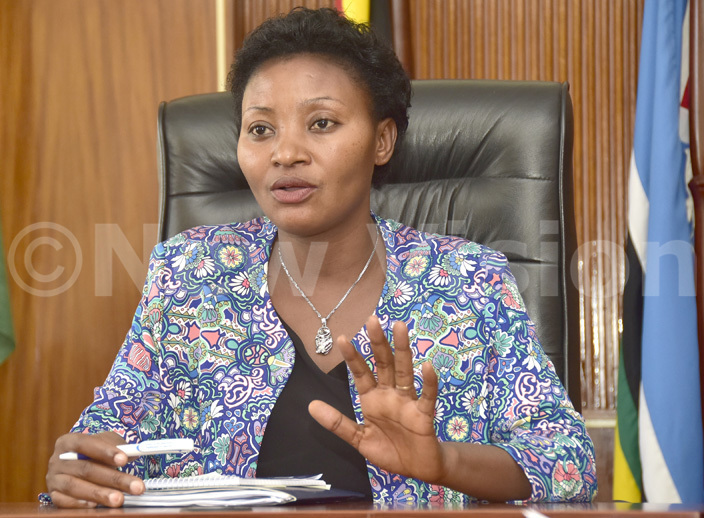Rugunda, opposition clash over state of democracy
Aug 19, 2016
The Leader of the Opposition falsely stated that democracy is not some grand idea delivered to us by self-styled freedom fighters.

PIC: The Prime Minister Ruhakana Rugunda makes a response on the floor of Parliament, on August.18, 2016. Photo/ Kennedy Oryema
The Prime Minister Ruhakana Rugunda has sharply disagreed with the Leader of Opposition Winnie Kiiza over the state of democracy in the country which the latter said leaves a lot to be desired.
Rugunda was on Thursday responding to the LOP's response to the State of the Nation Address which President Yoweri Museveni delivered on May 31, 2016.
"The Leader of the Opposition falsely stated that democracy is not some grand idea delivered to us by self-styled freedom fighters. This is not only erroneous but misleading. The NRA, the NRM and the freedom fighters in Uganda are the reason we are here and Uganda is what it is because of their sacrifice. This country witnessed instability in governance, coups, arbitrary arrests, extra judicial killings, abrogation of the constitution, and human rights violations. The NRM government reversed that trend and restored the dignity of our people," Rugunda argued.
In her response, Kiiza had said, "I found the president's reduction of democracy to having different groups represented in parliament not only astounding but also a profound misunderstanding of the concept. And for the country to have a president whose understanding of democracy is in that narrow sense should be frightening to all of us."
 Leader of Opposition, Winnie Kiiza during
Leader of Opposition, Winnie Kiiza during
Citing various groups of people represented in parliament including workers, people with disabilities, the youth, women, and the army, President Museveni said during the State of the Nation Address that Uganda is the most democratic country in the world.
Citing the electoral malpractices that characterized the 2016 general elections and other elections in the past under the NRM government, Kiiza said Uganda's electoral process is skewed in favour of the ruling NRM party and therefore cannot deliver free and fair elections.
"The war fought by NRA was challenging the 180 rigged elections. But elections have continued to be rigged massively. Our democracy today is in the intensive care unit. Rather than join the president in his state of denial, I implore this house to refocus its attention on building the pillars of our democracy by considering the necessary electoral reforms within the first year," Kiiza proposed.
But Rugunda argued that the 60% President Yoweri Museveni obtained in the last presidential election and the over 300 parliamentary seats the NRM won, are clear indicators that the NRM government enjoys overwhelming support from Uganda citizens.
"The Leader of Opposition makes a sweeping statement that our democracy is on indictment and is in intensive care unit on account of some election petitions. Election petitions are normal in a democratic process. The president was very clear on this matter when he identified the mistake of careerists introducing the use of money in electioneering. He made a pledge to deal with this problem and this will be part of our efforts to strengthen democracy," Rugunda explained.
All the election observers of the 2016 general elections including the European Union and Commonwealth observers raised a red flag arguing the elections were below the minimum democratic benchmarks.
The two leading opposition presidential candidates (Dr. Kizza Besigye and Amama Mbabazi) rejected the outcome of the elections citing massive rigging and other malpractices.
Challenging Rugunda, Mukono municipality MP Betty Nambooze wondered whether Ugandans picked up guns to fight the current government their struggle would not be justifiable since similar circumstances like rigging which compelled the NRA to wage a war are prevailing in the country.
Dokolo County MP Felix Okot Ogong, who is an NRM member, opposed Rugunda for praising the 27 NRA fighters who attacked Kabamba barracks in 1980, arguing their acts were acts of treason and rebellion against the then elected UPC government.
